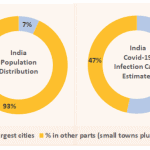Cracking the Nut: How a Cashew Enterprise Empowers Women in Rural Bali
In 2012, Lasmini began working as a daily laborer at East Bali Cashews (EBC) and has worked her way up to be the factory’s kitchen production coordinator. Her path was not without obstacles. Many Balinese women at the base of pyramid, especially in a remote village like Karangasem, have limited access to education and employment opportunities. More than 20 percent of women in Karangasem are illiterate. In addition, of those who are employed in the formal sector, the number of women employees are between 50-75 percent of men. Many women stay unemployed at home or work as informal laborers in agriculture, maintaining a small plot of land or a few animals.
Lasmini was one of the few who completed high school. However, lack of opportunity in the village left her unemployed. Her husband’s income alone was not enough for the family. She helped her mom to make and sell canang sari, daily offerings made by Balinese Hindus to thank God in their prayers. But this did not come close to fulfilling their daily needs. Then the opportunity at EBC came along.
EBC is a vertically-integrated social enterprise specializing in cashew products. It operates a processing facility in remote Desa Ban (Ban Village), Karangasem, one of the poorest regions in Bali, Indonesia. In 2012, Aaron Fishman travelled to Karangasem as a health care volunteer. He was amazed by the beauty of the region, but was struck by the poverty of its cashew farmers. He sought out local partners and started EBC, a social enterprise that combines environmentally sustainable business practices with its mission of community development and women’s empowerment.
EBC capitalizes on the opportunity to process cashews domestically in Bali, rather than the more common practice of shipping the raw product overseas for processing. Each day, EBC processes, on average, about 800 pounds of raw cashews, peeling and preparing them for snack production. (This doesn’t include other finished products, which they also package for snack goods). In addition, EBC emphasizes hiring local talent, especially women, because women’s empowerment and economic development are closely related. The factory currently employs more than 400 people, where 80% of them are women from local Karangasem area. The company’s leadership wants to ensure that what they are building in Desa Ban will lead to the community’s overall prosperity.
Increasing access to education and training
As a William Davidson Institute MBA summer intern at EBC’s factory, I had the opportunity to interact with many female employees like Lasmini. Some had successfully ascended to supervisory positions, while others have stayed in the same position since their first day. However, one common thread is that they all have benefited from management’s initiatives in providing them with training opportunities.
For instance, Putu started as a cashew-shelling laborer. She only completed elementary school. However, her limited formal education did not discourage her supervisors from training and promoting her to be the first woman mechanic at the EBC factory. I regularly saw her armed with with a toolbox and steel-toed boots, working on machines in need of repairing.
The company also aims to provide equal education opportunity for all levels of employment. For those in the lower level, EBC enrolls employees in NGO-ran weekend classes that prepare them for elementary, middle or high school final examinations, depending on the employee’s needs. For employees who are at staff level or above, EBC offers various in situ training during work hours, ranging from Excel to English.
Providing continuous learning opportunities for employees, in turn, increases their work motivation. As one of the employees told me, “I feel very fortunate to work here and the environment is not like a typical job. Here, it feels like I’m going to college while getting paid at the same time. There’s always something new for me to learn.”
Providing endless possibilities for women
I spent the last two weeks of my internship at EBC providing training and facilitating workshops for supervisors at the factory. Twelve out of 17 training participants were women, some of whom had been recently promoted to supervisor roles, and others who had been supervisors for some time. This shows EBC’s implementation of their women’s empowerment mission: They not only hire women to work as manual laborers, but encourage them to take on leadership roles and further responsibilities.
One example is Wayan, who became coordinator of the peeling area in 2016. Her journey there was not smooth. When her supervisor gauged her interest in becoming a coordinator, she was scared. She had never led people before and felt ashamed of her middle school degree. But, after continuous encouragement, she took on the challenge and has been the area’s coordinator for the past two years.
Wayan’s story shows that leading others often does not come naturally for these employees because they have never had such responsibility before. But EBC keeps pushing the boundaries by providing them with support and setting them up for success once they become a leader. In addition, the company has women in their upper management team, such as General Manager and Head of People Operations, that become role models for the factory employees.
The challenges of tradition and conflicting priorities for women
Achieving goals to empower women in a village chock-full of patriarchal tradition is not without hurdles. Though EBC provides opportunities for its employees to grow, at times these opportunities are ignored. In Karangasem, society expects a woman’s first priority should be her family. They fully accept the concept of working mothers. However, this should not come at the expense of their responsibilities at home. After work, many women at EBC will return home and still have to collect hay for their cattle. Some women might turn down promotions or training opportunities due to the additional time commitment. Yet, I’ve heard stories where the household dynamic eventually changed for some of them. Husbands started pitching in to do chores that used to belong solely to women. But such change did not happen overnight. Thus, as EBC work towards fully realizing its goal of equal opportunity for women, its managers need to keep in mind the personal challenges that these employees face everyday. Because once she overcomes these challenges, she can do anything. Lasmini told me once: “I never thought I could get here. But here I am and I can dream again of a better life for my children.”
Nadia Putri is an MBA candidate at Ross School of Business – University of Michigan.
Image provided by author.
- Categories
- Social Enterprise




